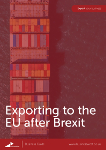
At the SMMT Summit in London today (Wednesday 20 June), Ian Howells, Senior Vice President for Honda Europe stated that the UK government remaining in the Customs Union could provide significant benefits to the ongoing success of the UK automotive sector.
Honda is one of Swindon’s largest employers and has a long and successful history within the town. Swindon is the home of Honda’s only UK plant, so these comments from Honda are of direct relevance to the town and its economy. It is extremely rare for Japanese companies to make public statements concerning a foreign government, so we should take this speech seriously. It is an indication of the issue’s importance to the firm and of their underlying concern about the current direction of travel of Brexit negotiations.
The request for the UK to remain in the Customs Union reflects a worry that leaving it will create additional paperwork and compliance issues that would hurt Honda’s competitiveness and ability to operate. Automotive manufacturing depends on ‘just in time’ supply chains which stretch across the whole of the EU. If done badly, leaving the Customs Union will mean having to fill in forms for every part that criss-crosses the UK border. This is likely to make it much more burdensome to operate and lead to a sharp increase in unproductive administrative costs.
Honda’s concern about leaving the Customs Union is matched by the concerns of hundreds of small and medium sized exporters across the region. When we surveyed our business members, they identified “the ability to trade without additional paperwork” as their number one priority for Brexit negotiations. We also found that 51% viewed the prospect of leaving the customs union as ‘negative’ or ‘very negative’; while only 14% viewed it as ‘positive’ or ‘very positive’. For many smaller firms, the additional forms required to export to Europe after Brexit could prove a significant problem for their competitiveness and export performance.
It also reflects a broader concern within the business community that government simply hasn’t been listening – and does not understand the difficulties that many firms will have in adapting. For example, we have yet to see a robust cost-benefit analysis by government of the impact of leaving the Customs Union on the economy. It is now time for the government to shift its negotiating position and also to start to address the practical obstacles that many firms will face post Brexit.
- Log in to post comments

